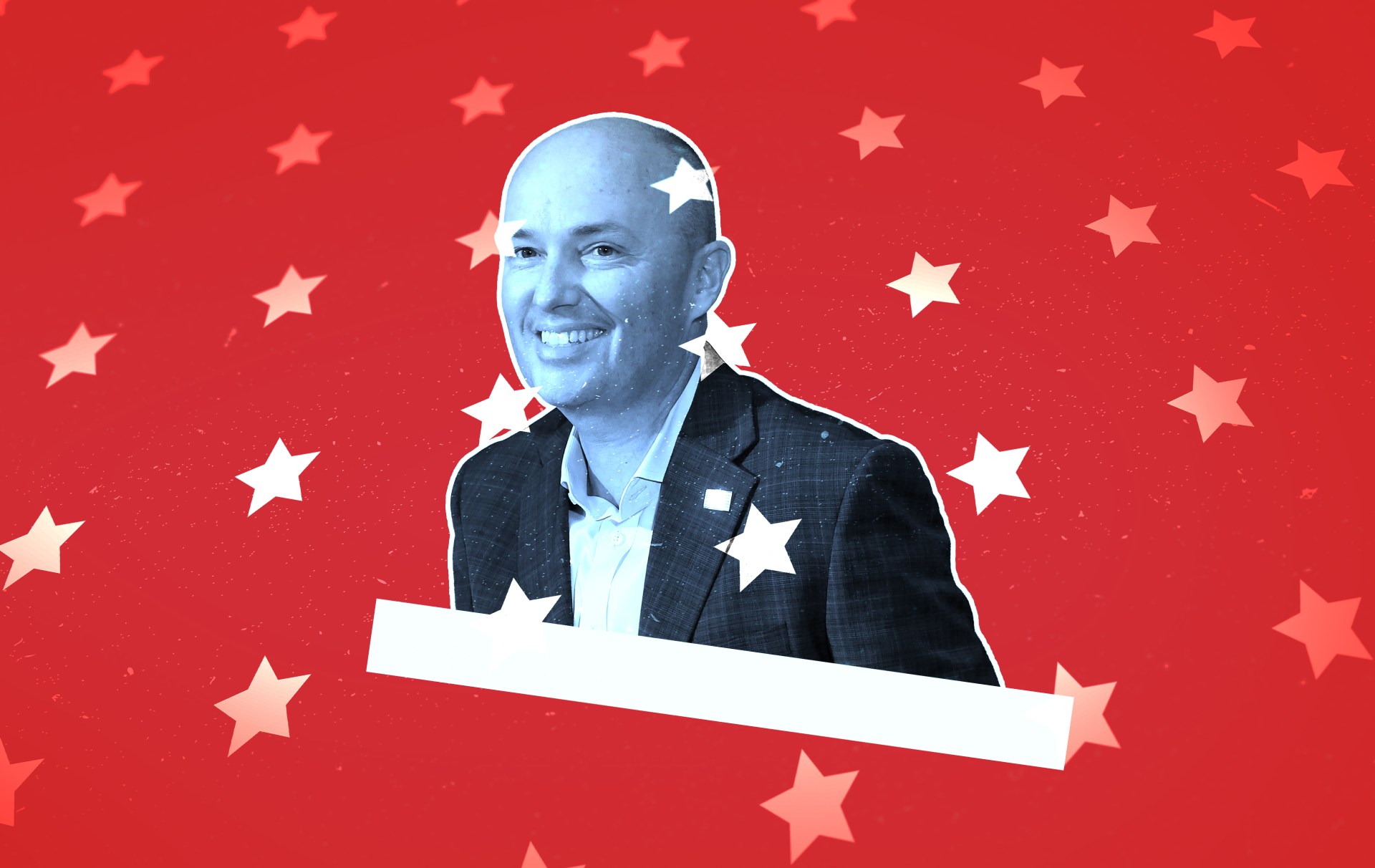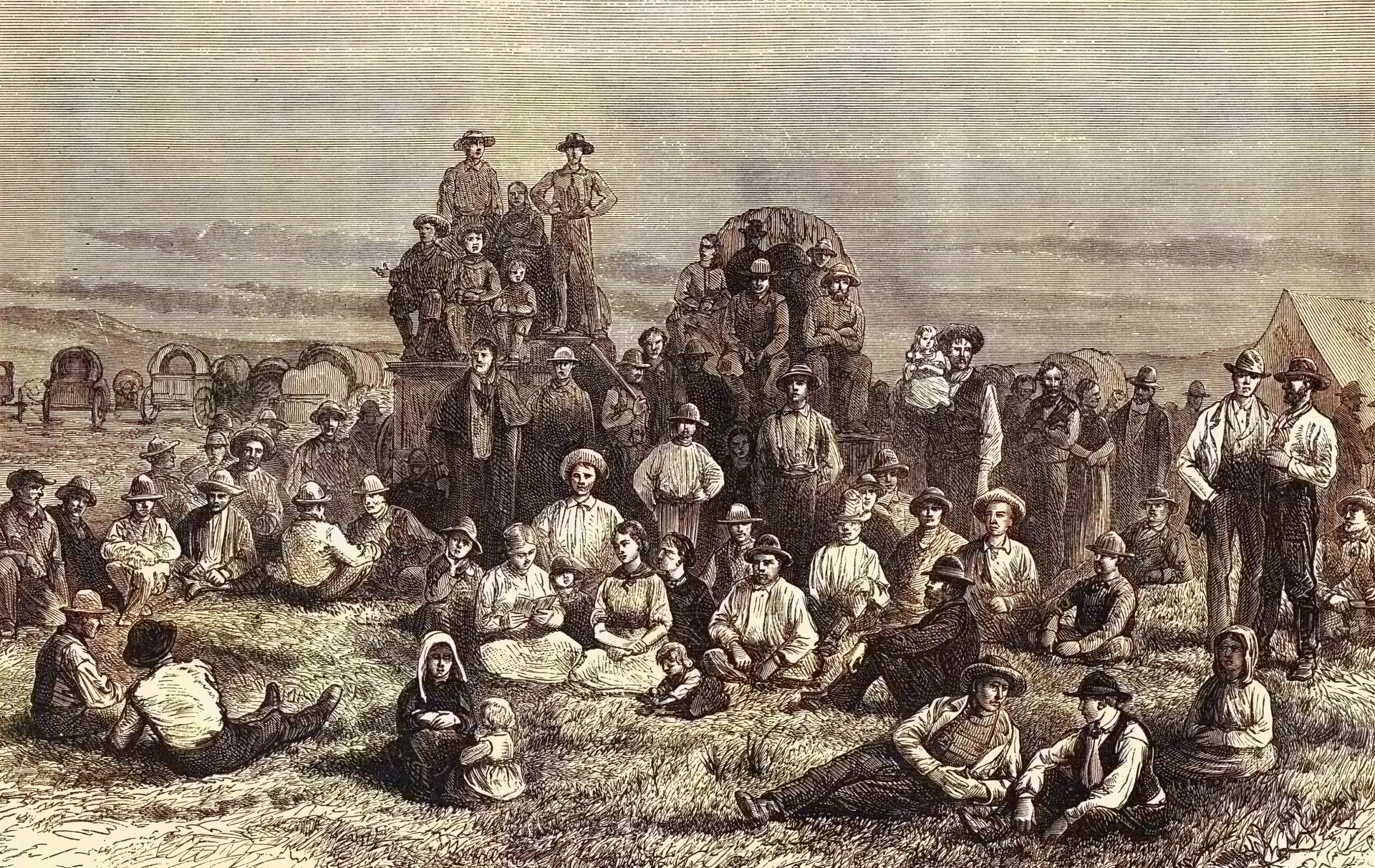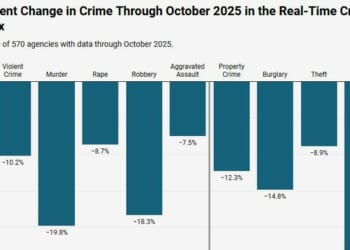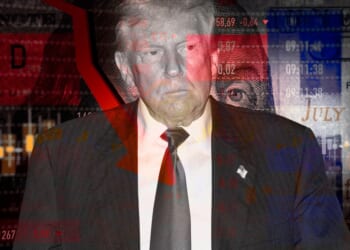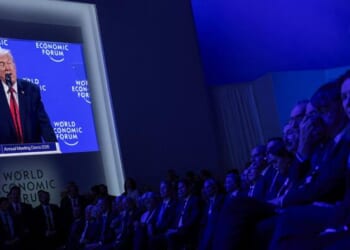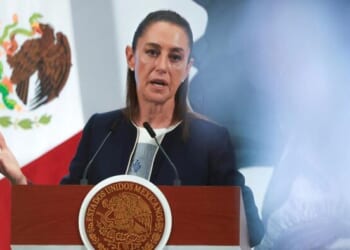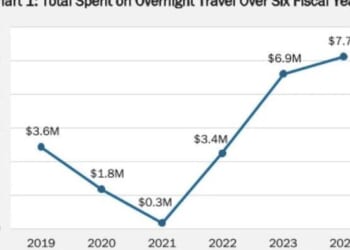Here at The Dispatch, we’re dedicated to cultivating the next generation of thinkers and leaders—that’s why we’re proud to provide low-cost, high-quality Dispatch memberships to students looking to stay informed, think critically, and better engage with the world around them
With your help, we can offer these students free Dispatch memberships and ensure they’re engaging with content that promotes the core values that make our country great—individual liberty, pluralism, patriotism, and capitalism.
Your support can help provide a new wave of young conservatives with better journalism, more thoughtful dialogue, and—hopefully—a brighter outlook on our future.
Hello. Tuesday marked the second anniversary of Hamas’ invasion of Israel, when the terrorist group killed nearly 1,200 people and kidnapped 251. On Thursday, we learned that the remaining 48 hostages—20 living, the rest deceased—will be returned soon as part of a peace deal brokered by President Donald Trump. Israel announced Friday that a ceasefire was in effect in the Gaza Strip.
As we wrote in The Morning Dispatch on Tuesday:
The attack shattered the notion that Hamas could be deterred through economic incentives and other pressure points. And that newfound realization extended to the country’s other enemies, giving birth to the idea that adversaries had to be neutralized rather than simply managed. In the two years since October 7, Israel has gone on the offensive to significantly degrade the threats posed by terrorist groups Hamas, Hezbollah, the Houthis, and their key state backer, Iran.
Indeed, at the same time Israel waged war against Hamas in the Gaza Strip, it faced attacks from Lebanon-based Hezbollah and Iran. Last fall, Israel (while never officially taking responsibility) carried out a remarkable attack on Hezbollah, killing at least 32 Hamas operatives and wounding thousands by remotely detonating pagers and walkie talkes. This June, Israel fought a 12-day war with Iran, conducting airstrikes on crucial military and nuclear sites, which ended two days after the U.S. launched its own strikes on Iran’s nuclear enrichment facilities.
Israel enjoyed remarkable successes in its campaigns—it assassinated Hamas leader Ismail Haniyeh in July 2024 and his successor Yahyah Sinwar three months later. But it might have been an Israeli misfire that ultimately led to the nascent peace deal.
Qatar has long hosted Hamas’ political leadership, and on September 9, Israel struck the group’s headquarters in Doha, the capital of Qatar, during a leadership meeting. The strike failed, though it did take out a Qatari security officer and several lower-level Hamas figures.
Israel also faced significant criticism for launching a strike on Qatari territory. As Jonathan Spyer detailed in a piece we published this week, Qatar plays a complex role in Middle East diplomacy. While it has offered Hamas a safe haven since 2012 and supported other Islamist groups like the Muslim Brotherhood, it has also established close ties with the West and hosts the largest U.S. air base in the Middle East.
One of the critics of the strike was Trump himself. “I was very unhappy about it, very unhappy about every aspect,” Trump told reporters. He reportedly spent the next few weeks reaching out to Qatar and other Arab nations, while also pressuring Netanyahu to bring an end to the war. He presented the framework for a peace deal to Arab leaders while at the U.N. General Assembly in late September, and days later Israeli Prime Minister Benjamin Netanyahu visited the White House. Trump urged Netanyahu to call Qatar and apologize, and the two announced a 20-point peace plan at a press conference.
On Wednesday, Trump announced that Israel and Hamas had both agreed to the first phase of the deal—the return of the hostages and a partial withdrawal by Israel.
In his Friday G-File, Jonah Goldberg wrote that if the hostages are indeed released in the coming days, “Donald Trump deserves a great deal of the credit.” He pointed to the failed Doha strike, noting:
It apparently didn’t take out its intended targets. But it also galvanized the White House and regional powers to force an end to the war. I don’t think that’s the result Bibi Netanyahu wanted. But it’s a big part of how we got to this moment.
The simple fact is that new facts on the ground created a diplomatic opportunity that Trump seized. This isn’t a backhanded way of denying Trump credit, it’s simply an obvious observation.
Trump is scheduled to travel to the Middle East Sunday night. He will visit Egypt for the signing of the peace deal and is expected to address the Knesset in Israel.
In related coverage, Michael Warren traveled to New York this week in hopes of covering one of Democratic mayoral nominee Zohran Mamdani’s daily public events, only to find Mamdani had no public events on Tuesday, October 7. Mamdani has been a vocal critic of Israel’s campaign against Hamas and appeared to be lying low. Mike did find Mamdani at an Israelis for Peace event, where speakers repeatedly described Israel’s actions in Gaza as genocide.
Thanks for reading and have a good weekend.
Shortly before Utah Gov. Spencer Cox and I spoke, Trump said in a speech to top military brass that he would use the military to target the enemy within in major U.S. cities. Asked about that comment, Cox says: “We called out the National Guard when there was a riot downtown and violence downtown [in Salt Lake City], so I think there is a time for that. I also believe that there … should be a divide between kind of daily law enforcement versus military. That’s an important distinction that we’ve made in our country for a long, long time.” Cox does not plan to run for reelection as governor in 2028, but he has been quick to shoot down any notion that his friendlier relationship with Trump means he has presidential ambitions. In a September 28 appearance on 60 Minutes, Cox said the “thought of running for president makes me nauseous. I have no interest in that,” correctly adding that even if he wanted to: “The way we select our candidates makes it almost impossible for someone like me to have an opportunity.”
Carlson once told me that Orwell’s “Politics and the English Language” was one of his favorite essays. It’s one of mine too, one of the very few I make myself re-read every couple of years. I guess we read different essays. Because this passive-voiced, deceitful, yada-yadaing of wholesale murder is one of the most grotesque things said in recent years. And it is precisely the kind of thing Orwell was denouncing when he wrote, “In our time, political speech and writing are largely the defence of the indefensible.” The Carlson I knew would issue that quasi-manic, hyena-like guffaw for which he is famous at the suggestion that the Holocaust was simply an accident of those famously poor planners, the Germans. The Carlson of today theatrically nods along.
There’s a common myth, as Latter-day Saint historian Spencer McBride has pointed out, that “the American Revolution ushered in universal religious freedom.” But any perusal of American history as it relates to Catholics, Jews, Muslims, or numerous other minority faith traditions in the United States quickly dispels this notion. Latter-day Saints provide an easy “Exhibit A.” After the Saints painstakingly documented the atrocities of Missouri—the violence, the burnings, the stolen land, the rapes, and the murders—the church petitioned anyone who would listen and many more who wouldn’t. Smith sent a handful of letters to potential presidential candidates, seeking an answer to how they would protect the Saints if elected. He received a few responses, but none proved satisfactory. Some pointed to the states’ rights doctrine, holding that the Bill of Rights was simply unenforceable against the states. Only the 14th Amendment, ratified after the Civil War, would eventually change that. But even then, the Supreme Court didn’t rule that the First Amendment applied to the states until the 20th century. Faced with these disappointments, Smith decided to take a different approach, launching his own bid for the presidency in 1844.
The Trump administration’s attacks on free speech have come in many forms, and they are quickly intensifying. Over the past weeks, senior Republicans have demanded that scores of people be fired over remarks about the assassination of Charlie Kirk (many of which were indeed false or callous). Brendan Carr, the commissioner of the Federal Communications Commission, exerted massive pressure on ABC to take Jimmy Kimmel off the air, going so far as to say that “we can do this the easy way or the hard way.” The administration and its allies have repeatedly threatened to revoke the visas of non-citizens, including both students and journalists, who have engaged in disfavored political expression. Meanwhile, President Donald Trump himself is publicly exhorting the Department of Justice to go after his political enemies, making it clear that the ultimate price for displeasing the president may be prosecution by the full power of the federal state. Amid this crackdown on the principles animating the First Amendment, it has been fascinating to watch supposed conservatives repeat some of the most ill-judged progressive justifications for limits on free speech.


